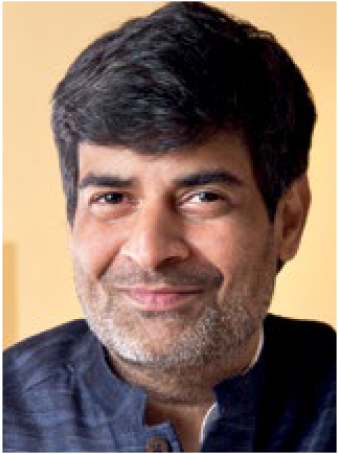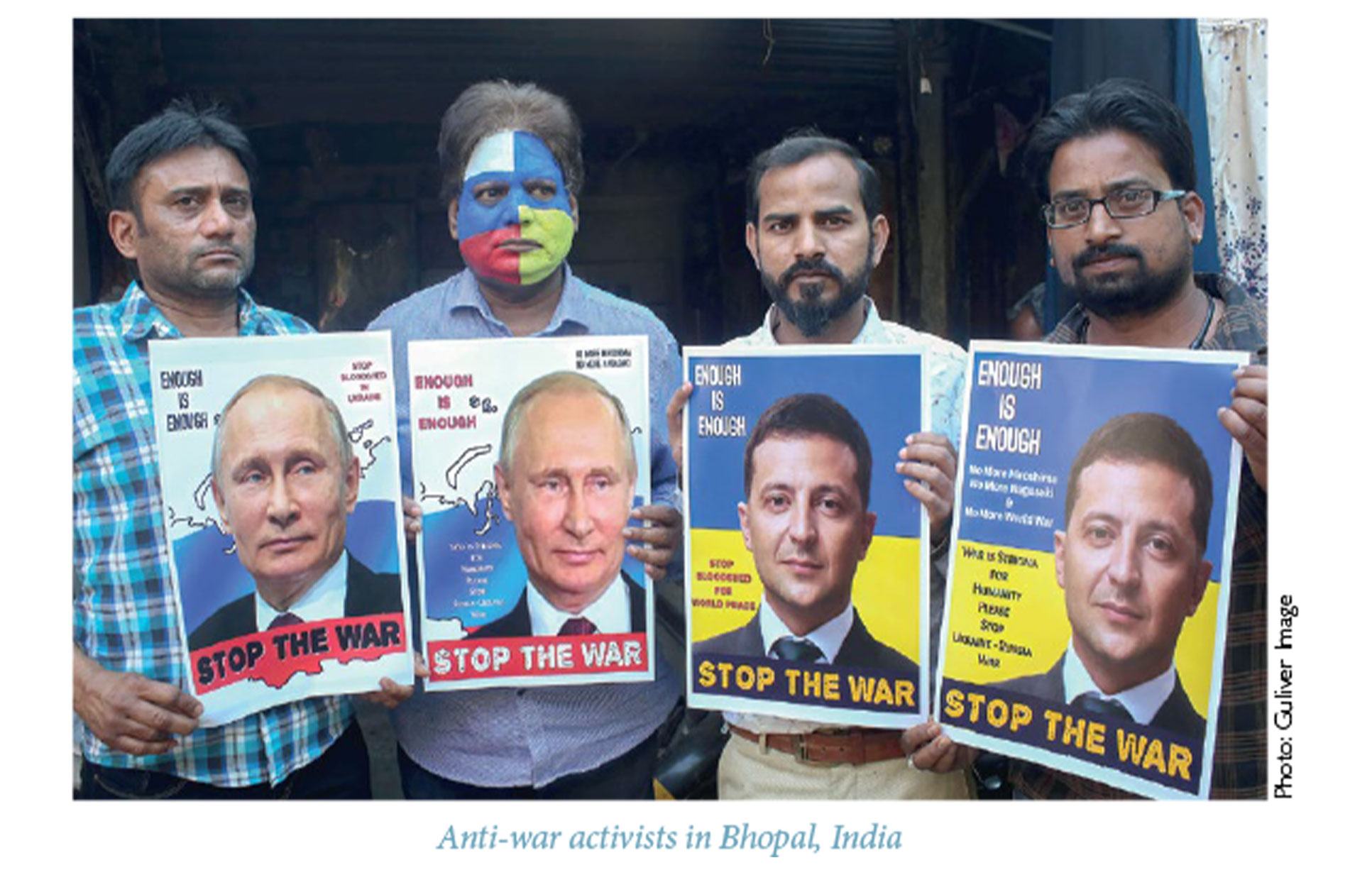 Samir Saran is the President of Observer Research Foundation (ORF), India’s premier think tank. This essay is a written summation of key points verbally presented by the author at the 2022 annual meeting of the World Economic Forum in Davos. You may follow him on Twitter @samirsaran.
Samir Saran is the President of Observer Research Foundation (ORF), India’s premier think tank. This essay is a written summation of key points verbally presented by the author at the 2022 annual meeting of the World Economic Forum in Davos. You may follow him on Twitter @samirsaran.
When Russia invaded Ukraine on February 24th, 2022, the world found itself in unchartered territory. Much of the global community quickly rallied behind the notion that violating a country’s territorial integrity in the twenty-first century was inconceivable and unacceptable. This twentieth-century impulse of choosing cruise missiles over conversations was not something that most foreign policy strategists, at least in the West, were expecting, though some could see the looming possibility. The only true surprise was the pace at which it unfolded and the audacity of Putin’s decision.
While considerable time has been spent on arguing the Russian red lines in the Ukraine war and the West’s conduct to avoid crossing them, it is moot to believe that Russia could come up with any other conventional response or escalation. After all, other than the nuclear arsenal, pretty much everything in their military and political toolkit has already been deployed. While that one exception continues to be a source of great concern, it should also compel the West to give Russia room for an exit strategy. That off-ramp to end the conflict is nearly impossible to define and agree upon because it needs to be acceptable to both Ukraine and Russia and the larger public—implicated by emotions across ideological divides.
Amidst all this, there are two trends for which we need to watch out. First is the distinction between Russians and their President. While there arguably exists a significant distance between the two, the question that we need to ask is whether that distance will increase or narrow as the conflict progresses and the mediated hysteria punishes all Russians and not just the leadership. This will also determine the broader outlook for European security. If the people of Russia continue to align with the Kremlin, we might be in for a rough decade in Europe. After all, history tells us that a Russian society that unites against a sense of assault is resilient, and Europeans might just feel the full extent of Russian nationalism.

Both Europe and the United States are guilty of uniting the Russian public with its leadership by attacking and censoring everyday Russian activities. When musical or ballet performances are shut down or people are prevented from participating in sports events due to their Russian nationality, all Russians will see themselves as being the target of hostility. This geopolitical equivalent of the “cancel culture” that now pervades Western thinking is alien to several non-Western societies. Should Americans be targeted because their government threw the Afghan people under the bus in 2021, or for the decision to invade Iraq in 2003? This Manichean splitting everything into binary choices is an age-old European obsession in which much of the world may not want to participate. Russians are more than Putin, and this should at least inform, if not guide, the thinking of the international community in the time ahead. Else, they are en route to an unremitting hostility in the heart of Europe.
The second trend is how and when equilibrium can be reached. A possible equilibrium is, of course, the creation of new territories and borders on the map. After this, the inhabitants of new political entities on both sides of the frontline would be expected to move on. This is exceedingly hard to imagine and more importantly, such an equilibrium would certainly not lead to lasting peace. Each side would be looking for the first opportunity to reverse the arrangement in its favor. This brings us to the second vision of equilibrium: It entails a complete Russian retreat, reverting to the pre-Crimea times, and a new beginning. The Russians are not going to agree to this even if the regime in Moscow was to undergo significant changes. Chances that the next President of Russia undoes what Vladimir Putin seeks to achieve are slim. Instead, any successor administrations are only likely to double down. The loud cries for regime change emanating from quarters across the Atlantic reflect shallow thinking, not mindful of outcomes.







